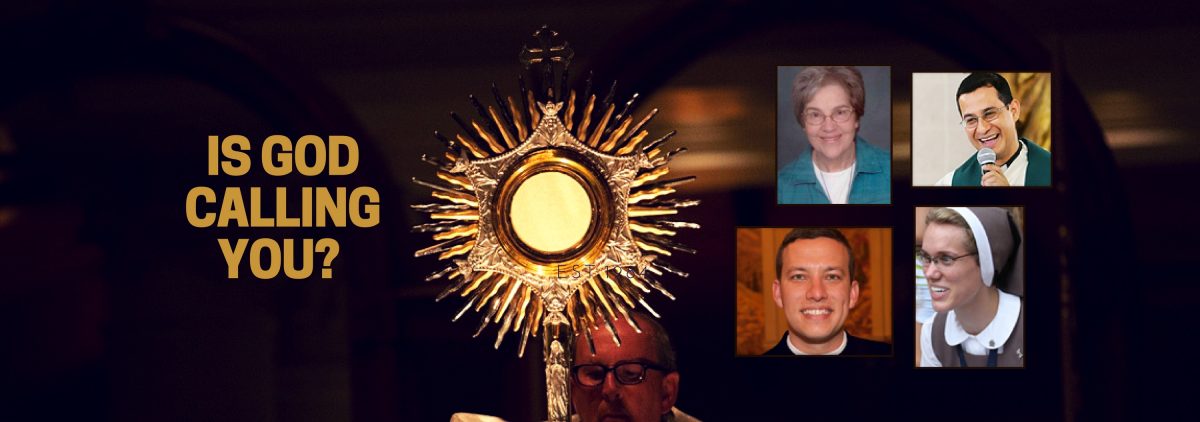Discerning the Call to the Priesthood or Religious Life
In the past couple of years we have had serious inquires or applications from all walks of life: lawyers, architects, engineers, the vice president of a bank and even a high school homecoming king.
These men, who in the eyes of the world have it all, are seeking the One who has invited them to follow him. They have the six-figure salary, the three thousand square foot home on the lake, and yet they go home wandering and seeking more in their lives:
- The high school student, usually worried about the reaction of his friends, now speaks openly about discerning a vocation to the priesthood.
- The single young adult, who spends time in retreat, is yearning to follow God and respond to God more freely.
Each person has the need to seek God’s will in his or her life – married or single lay people as well as the contemplative religious who is ever seeking to deepen his or her relationship with God.
The best thing we can do for religious vocations is to develop holy marriages and families. Here lies the fertile field of all vocations.
Our work at the diocesan Vocations Office is to help these good people grow ever closer to God and to discern their call.
But in the “busyness” of everyday life it is difficult to hear the call of God, if not impossible. Sister Kathleen Power, associate director of vocations, and I help each person to enter into an encounter with God, to enable them to listen to God. This “listening” to God presumes several things:
- Freedom to follow the call;
- Maturity, self-possession;
- A healthy understanding of sin and grace, purity of heart;
- Healing from past hurts and naturally living the gospel values.
When the apostles were called, they each had some of these qualities, yet Jesus brought them to greater growth in each of these areas. Philosopically, they possessed them in potentiality and Jesus loved them so that these qualities came alive in actuality.
In this day and age, a man is a product of our culture as he approaches the process of discernment. He has grown in our world, exposed to all its forces – from good to bad and from earthly to heavenly. It is not unusual for someone to come from a broken home, have a strong presence on the internet and seek to change the world.
Contemporary culture seeks to have a God who is a promoter of love – but the world is afraid to allow God to teach, guide or even speak at times. Among attitudes smothering society’s relationship with God are the following:
- God is a myth for the ignorant; he doesn’t really exist (atheism).
- Happiness and success are achieved in possessions and power (materialism).
- “Try it. If it’s good and you like it, it’s good. If not forget it.” Or “This Person seems to have it all together, I think this is the way to go” – without consulting God (experimentalism).
It is a sign of God’s glory that in the midst of this culture the Lord is raising his future shepherds to guide his people closer and closer to his heart. History has shown time and time again that vocations go up when things are difficult.
Persecutions, since the beginning of the Church, have proven time and time again that the Lord will not only triumph in the midst of unspeakable horrors, but that the faith of the flock will be strengthened enough to respond generously.
If you have a desire to speak more about a vocation to the Priesthood or Religious Life, call the Vocations Office: 407-768-3113.
Prayer and Discernment
A person who prays to discern his/her call from God prays in three general areas:
- Pray for the right orientation, a genuine dedication to God’s values and purposes so that these are predominant in all your life choices.
- Prayer for the generosity and courage to give the gift of yourself and your life in some concrete way to the cause of the God’s reign.
- Prayer for help in discerning, to know myself better and then to read clearly the various options you are contemplating (Thomas Hart).

